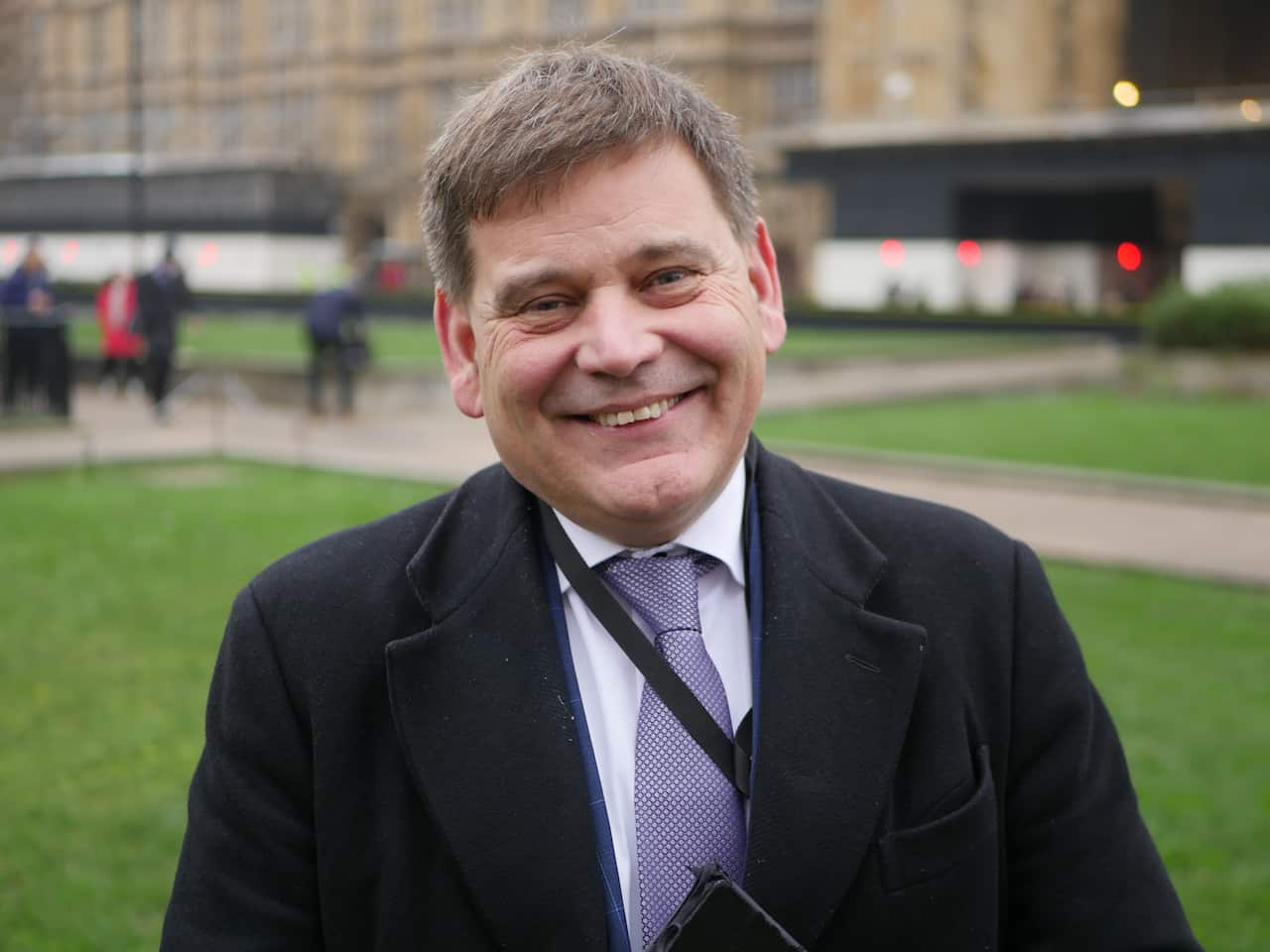The battle was lost long ago.
But anti-Brexit campaigners still gather outside the gates of parliament on sitting days, holding banners and singing songs.
Steve Bray is perhaps the best known of them all. He became an internet celebrity for his tendency to bellow "stop Brexit" at a level which frustrated numerous broadcasters. He’s convinced that history will show the nation has made a calamitous mistake.
He’s convinced that history will show the nation has made a calamitous mistake.

Steve Bray has made daily protests against Brexit. Source: Ben Lewis
“The disaster that Brexit is going to be is going to unfold quite quickly,” he told SBS News.
“People looking back will look back in the same way as they did with the decision over the Iraq war. Most of Britain was behind the Iraq war, believing something they were told by the government. Same here.
"We have a government that’s deceiving us, and they’ll look back at what an embarrassment Brexit was, and what a shameful position we put our nation in.”
Brexiteers think otherwise.
For them, it’s a time to celebrate.
Conservative MP Andrew Bridgen has been one of the party’s most vocal Brexit supporters. Standing on College Green, outside the Palace of Westminster, he can barely believe it’s about to happen.
Standing on College Green, outside the Palace of Westminster, he can barely believe it’s about to happen.

Conservative MP Andrew Bridgen says the last three years of debate has been harder than the referendum. Source: Ben Lewis
“It’s almost surreal,” he says. “I remember being on the Green here when the result was announced that we’d won the referendum back in 2016.
"Quite honestly, the battle over the last three years for the hearts and minds of the Conservative Party, our democracy and our country has been harder than the referendum.”
Mr Bridgen had backed a campaign to "make Big Ben bong" to mark Britain’s departure from the European Union.
A GoFundMe campaign raised £272,646 (A$531,000) – but refurbishment works meant it was unfeasible. The money will be donated to a veteran’s charity instead.
Still, Brexiteers are planning a party. Thousands are expected in Parliament Square, where Brexit Party leader Nigel Farage will fire up the crowd.
Prime Minister Boris Johnson is expected to address the nation, a special cabinet meeting will take place in the North of England, while a countdown clock will be projected onto the walls of Downing Street. But many Brexit observers believe the celebrations may be premature.
But many Brexit observers believe the celebrations may be premature.

A man raises Union Flags on Parliament Square in London ahead of Britain's withdrawal from the EU on 31 January. Source: AAP
When Britain leaves the EU at 11pm GMT, an 11-month transition period begins, allowing for trade deal negotiations between London and Brussels.
“People living in the UK won’t really feel the difference on the first of February, but they very may well feel the difference on the first of January 2021 if the UK and EU fail to reach an agreement in time,” says the Institute for Government’s Georgina Wright.
“If the UK and EU do stick to an 11-month negotiating period, it’s likely to be a very basic deal, one that would cover goods, questions around tariffs and customs and how you manage that relationship, leaving other areas such as services for 2021.”
Those who backed the "leave" campaign, including the prime minister, insist Britain has an exciting future, free to reach its own trade deals and set its own course in the world.
“We should have a bit of 'can do' spirit as we go into this," says UK Foreign Secretary Dominic Raab.
“I think Brexit is partly about having a measure of self-confidence, ambition and a sense of pursuing the UK’s interests.”
There are still many questions about what Britain’s future will look like and what its relationship with the European Union will be.
Voters didn’t know the answers in 2016, but still backed Brexit.
The UK is about to take a big step into the unknown.


